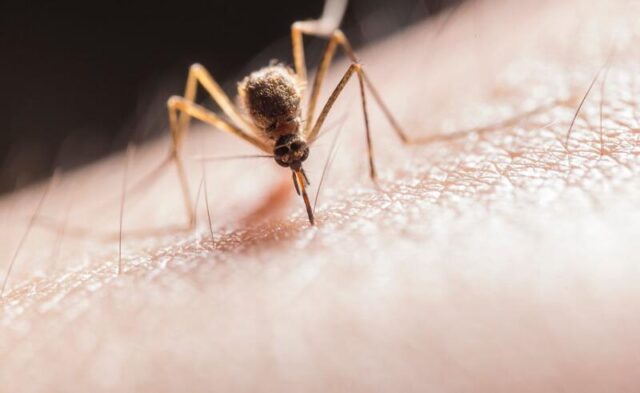Malaria, is a potentially fatal disease, that is transmitted by female Anopheles mosquitoes. Unfortunately, children under the age of five are most vulnerable to this illness, with nearly 80% of all malaria deaths in Africa occurring within this age group, according to the World Health Organization.
WITH the arrival of summer, most parts of South Africa are enveloped by intense heat and refreshing summer rains.
These seasonal temperatures also signal the heightened risk of malaria, a mosquito-borne disease that poses a significant threat to public health in affected regions.
Malaria remains a substantial public health challenge in certain regions of South Africa, particularly in the north eastern provinces of Limpopo, Mpumalanga and KwaZulu-Natal, where malaria is endemic.
According to the World Health Organization (WHO), South Africa has made significant progress in reducing malaria cases and deaths over the years, with reported malaria cases declining from over 60,000 in 2001 to approximately 9,000 in 2019.
This notable reduction in malaria incidence is attributed to concerted efforts in implementing comprehensive malaria control strategies, including vector control, early diagnosis, and prompt treatment.
One of the key interventions that has played a pivotal role in curbing malaria mortality rates in South Africa is the widespread use of insecticide-treated bed nets.
These bed nets, often distributed as part of public health campaigns, serve as a physical barrier against mosquito bites, significantly reducing the risk of malaria transmission during the night when Anopheles mosquitoes, the primary vectors of malaria, are most active.
Don’t let malaria kill your festive spirit
A statement released by the National Institute for Communicable Diseases South Africa on 30 October 2023 states, “The start of summer generally marks the start of the malaria season in South Africa, due to higher temperatures and increased rainfall in the malaria transmission areas.
“The malaria- endemic regions are beginning to see increases in the number of malaria cases as expected, marking the start of the malaria season.
“We, therefore, urge individuals travelling to malaria-endemic areas to take the appropriate precautions. Travellers should consider taking antimalarial prophylaxis, particularly if travelling to high-risk areas. Both doxycycline and atovaquone-proguanil can be taken.”
The NICD has issued a warning about a significant uptick in malaria cases in Limpopo, Mpumalanga, KwaZulu-Natal, Gauteng, as well as neighbouring Eswatini (Swaziland) and Mozambique.
Malaria, is a potentially fatal disease, that is transmitted by female Anopheles mosquitoes.
Unfortunately, children under the age of five are most vulnerable to this illness, with nearly 80% of all malaria deaths in Africa occurring within this age group, according to the World Health Organization.
Approximately 10% of South Africa’s population, equivalent to around 4.9 million people, is at risk of contracting malaria.
In an interview with Independent Media Lifestyle, Gary Feldman, Executive Head of Healthcare Consulting at NMG Benefits, discussed the importance of early detection and treatment.
Feldman said undiagnosed and untreated malaria can rapidly progress to severe illness, requiring urgent hospitalisation.
“The initial symptoms of malaria, such as fever, chills, headaches, fatigue, and muscle pain, may resemble those of Covid-19. Consequently, individuals with malaria symptoms often choose to isolate themselves, delaying proper medical care.
“If you have been living in or have travelled to a malaria risk-area in the past six weeks, and may be experiencing any of the mentioned symptoms you must be tested for malaria by a doctor and, if the test is positive, must start on treatment immediately,” he added.
“It is also possible to contract malaria even if you haven’t been in a high-risk area: through a phenomenon called Odyssean malaria.
“(Also called taxi malaria, for obvious reasons) (it) is transmitted by mosquitoes that have hitched a ride in a vehicle from a high-risk area to one where people may be less aware and less cautious.”
Feldman continued: “Unfortunately, there are many myths surrounding the disease, and believing them could be the death of you – quite literally.”
Common myths include:
• I’ve had malaria, so I’m immune.
• I’m not travelling to a high-risk area, or in the rainy season, so I won’t be bitten.
•I’m only in a high-risk area for a day or two, so it isn’t worth taking anti-malarial tablets.
• Anti-malarial tablets have awful side effects that outweigh the benefits of taking them.
• Taking anti-malarial tablets makes it 100% certain that I won’t get malaria.
In addition to taking anti-malarial tablets as prescribed before, during and after your trip, there are other precautions you should take to safeguard against malaria.
Feldman urged people to take extra precautions by using an EPA-approved insect repellent on all exposed skin and wear long-sleeve shirts and long pants, especially during the evenings when mosquitoes are most active.
There are tablet and insect repellent options suitable for children and pregnant women.
For those residing in malaria-risk areas, regular application of a product containing Permethrin on clothing and bedding is recommended. Permethrin effectively kills mosquitoes, sand flies, and other flying insects, even after several washes.
“It’s also advisable, for both residents and travellers, to keep the doors and windows closed at all times and to sleep under a mosquito net,” said Feldman.








